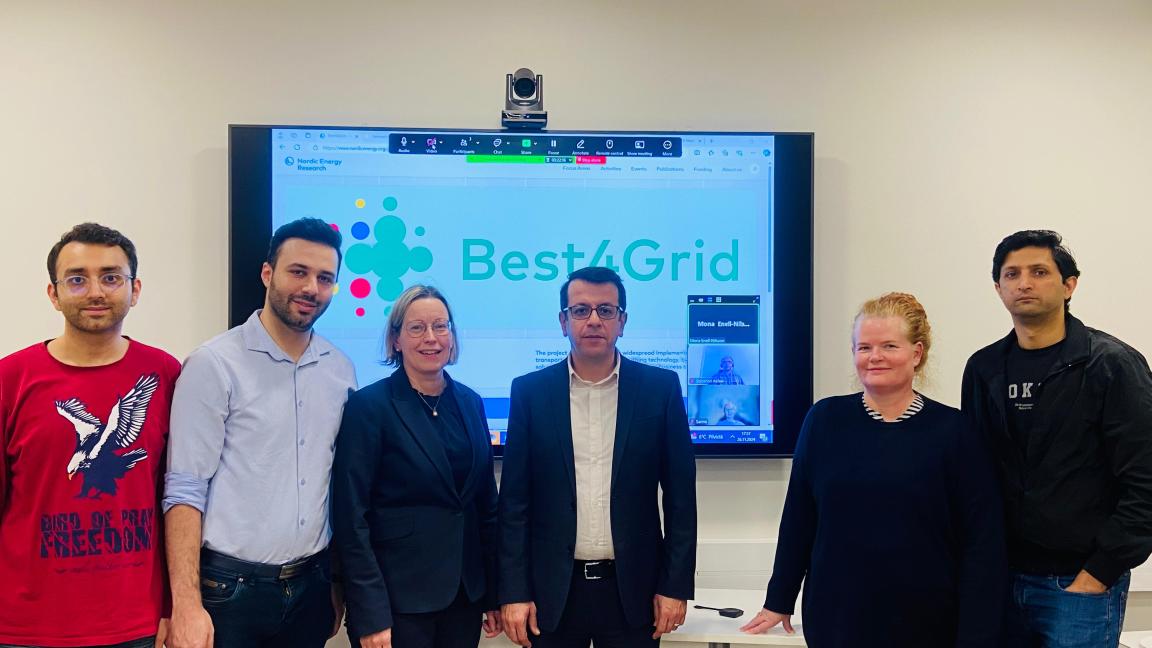The largest and most innovative energy technology cluster in the Nordic countries, EnergyVaasa, operates in the Vaasa region. The goal is to develop sustainable technology solutions, which help to reduce emissions and save energy on a global scale. Local universities, energy technology companies and municipalities work together on research, product development, innovation and education.
University of Vaasa is involved in one of the projects of the Nordic Grand Solutions program, "Best4Grid", which is coordinated by the Technical University of Denmark, DTU. The multidisciplinary project combining business and technology disciplines investigates the use of vehicle battery storage for green traffic and for stabilizing the electricity grid.
– In the Nordic countries, reducing emissions in the transport sector is essential. This can be achieved through measures such as electrification and an increased reliance on renewable energy sources. However, the transition to renewables presents challenges, including imbalances between energy supply and demand, reduced capacity margins, and congestion in the electricity grid, explains Associate Professor Mazaher Karimi, who leads the technical research for the project at the University of Vaasa.
– In this situation, the batteries of electric vehicles offer a possibility to store electricity when there is excess capacity, and to use it later when there is a shortage of electricity, thus balancing the electricity grid. This is called V2X – vehicle-to-everything. However, the implementation of V2X technology is connected to technical, market, social and political challenges, which have slowed down its large-scale implementation. The Best4Grid project aims to provide solutions for this, says Senior Researcher Mona Enell-Nilsson, who leads the project at University of Vaasa.
Wärtsilä is involved as a partner in the project "Hi-EFECTS" of the Nordic Grand Solutions program coordinated by Aalto University, enabling the testing of renewable fuels under engine conditions.
– We are looking for solutions for the green transition of maritime transport, especially CO2-neutral fuels such as ammonia and methanol. We are developing engine combustion technologies so that greenhouse gas emissions can be zeroed out, says Associate Professor Ossi Kaario from Aalto University.
– Wärtsilä is strongly involved in developing the fuels of the future, and we already have the first generation of both ammonia and methanol engines in our product portfolio. However, there is still much research and development work to be done. The green transition is strong in the Nordic countries, and Nordic collaboration is also advancing solutions globally, says Jari Hyvönen, General Manager, Advanced Concepts, who is involved in the project on behalf of Wärtsilä.
Both projects are funded by Nordic Energy Research.
– The need for research and new knowledge is vital for the quality and speed of the green transition, says Lise Nielson, senior adviser at Nordic Energy Research which operates the Nordic Grand Solutions program under the auspices of the Nordic Council of Ministers.
– Social acceptance is another important factor for the projects to work with. Including the citizens of the Nordic countries in the design and use of new technology is an efficiency measure - we are operating with a sense of urgency, and social acceptance is vital for bring the project results into everyday use, Nielson adds.
In the photo (from left to right): Project Researcher Hossein Naderian, Project Researcher Tohid Abedi, Senior Researcher Mona Enell-Nilsson and Associate Professor Mazaher Karimi from the University of Vaasa, Senior Adviser Lise Nielson from Nordic Energy Research and Postdoctoral Researcher Shah Rukh Shakeel from the University of Vaasa.
